Skin Cancer
Skin cancer stands as the most prevalent form of cancer globally, affecting a significant number of individuals. Alarming statistics from the Skin Cancer Foundation reveal that 1 in 5 Americans will confront some form of skin cancer by the age of 70.
This pervasive condition originates when abnormal cells undergo uncontrolled growth within the skin, often manifesting through changes in moles or the emergence of new growths. The three primary types of skin cancer—melanoma, basal cell carcinoma, and squamous cell carcinoma—underscore the diverse nature of this health concern.
Recognizing the pivotal role of early detection in treatment effectiveness and optimal outcomes, an annual full-body skin examination by a dermatologist is deemed essential. At SeaCoast Skin Surgery, we dedicate ourselves to education, prevention, and the early detection of skin cancer, placing your well-being at the forefront of our mission.
SeaCoast Skin Surgery is unwavering in our commitment to assisting patients in reaching their lifelong goals. Through the provision of proactive measures, early identification, and state-of-the-art surgical care, our aim is to empower individuals not only to preserve but also to exceed their expectations for skin health. Your well-being, aspirations, and skin health are central to our mission.
Embrace a proactive approach to safeguard the health of your skin by scheduling an appointment with one of our trusted dermatologists today. As global leaders and innovators in skin cancer surgery and reconstruction, SeaCoast Skin Surgery remains steadfast in our dedication to guiding you on a path toward optimal skin health.
Examples of Skin Cancer
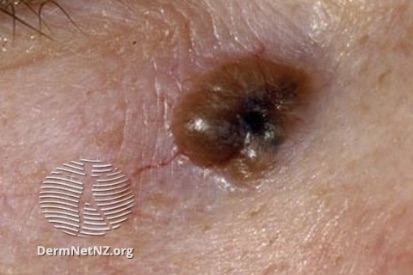
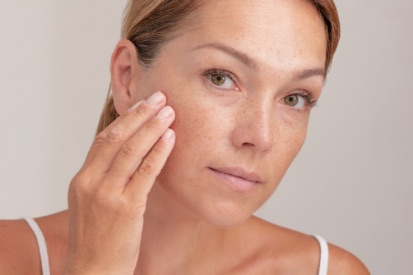
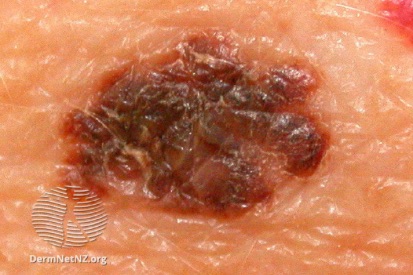
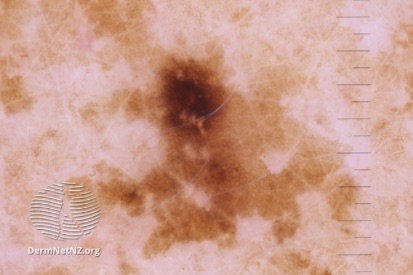
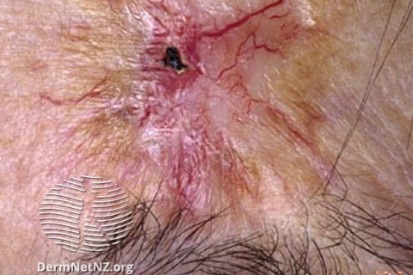
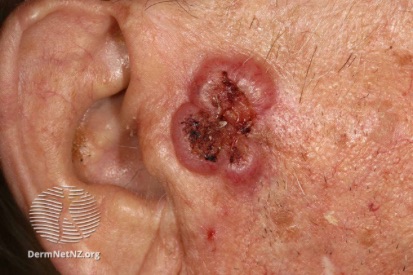
Symptoms of Skin Cancer
- For basal cell carcinoma: usually occurs on sun-exposed areas of the face, neck, and body. Basal cell carcinoma appears as a waxy, whitish, or pink bump, or a flat lesion that may be pink, brown or flesh-toned.
- For squamous cell carcinoma: occurs most often on sun-exposed areas such as the face, ears, neck, hands, and body. Squamous cell carcinoma can appear as a solid, red bump or a flat lesion that has a scaly or crusty feel.
- For melanoma: can appear anywhere on the body, in normal skin or in a mole that then becomes cancerous. Melanoma can have many presentations, so any new or changing spot on the skin should be evaluated.
What Causes Skin Cancer?
- Skin cancer can occur in anyone, anywhere, but is more likely to occur in people whose work or lifestyle exposes them to direct sunlight on a regular basis, or whose childhood or youth was filled with sun exposure.
- Though skin cancer occurs less often in people with darker complexions than in those with fair complexions, dark-skinned people are at higher risk for cancer in areas of the body not normally exposed to the sun.
Skin Cancer Prevention
Our skin experts are leading the movement in skin health management and prevention by offering an annual Total Body Skin Exam to everyone we treat, aiming to detect skin cancer early and ensure comprehensive skin care.
Skin Cancer FAQs
Early detection is crucial for effective treatment. Perform regular self-skin examinations, checking for changes in moles, new growths, or unusual spots. Additionally, an annual full-body skin examination by a dermatologist is recommended for comprehensive assessment.
Risk factors include excessive sun exposure, a history of sunburns, fair skin, family history of skin cancer, certain genetic conditions, and exposure to certain environmental factors. Understanding these factors can help individuals assess their risk and take preventive measures.
Diagnosis involves a biopsy, where a sample of the suspicious area is removed and examined under a microscope. Dermatologists may also use tools like the ABCDE rule (Asymmetry, Border irregularity, Color variations, Diameter larger than 6mm, Evolution or change) to assess moles.
Sun protection is crucial for preventing skin cancer. This includes using sunscreen with a high SPF, wearing protective clothing, avoiding peak sunlight hours, and seeking shade. Regular skin examinations, both self-checks and professional evaluations, contribute to early detection and prevention.
From Our QualDerm Family of Providers: Skin Cancer Treatment Options
Skin Cancer Treatments
- Mohs micrographic surgery
- Excisional surgery
- Cryotherapy (freezing)
- Currettage and Electrodessication
- Chemotherapy
- Radiation
Featured Products for Sun Protection
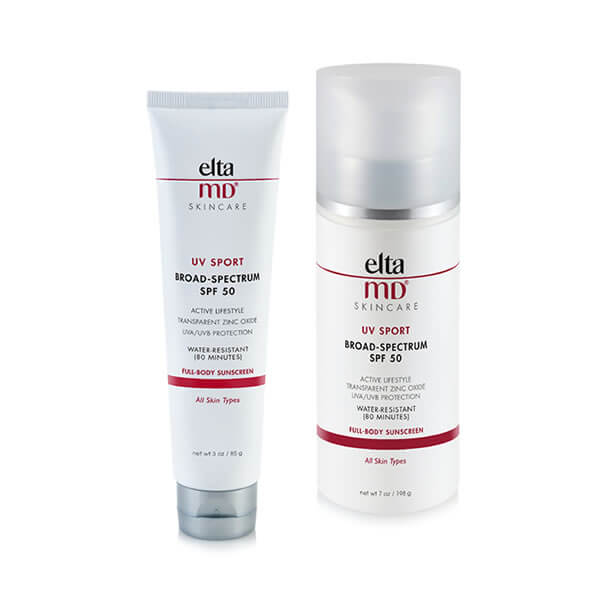
EltaMD UV Sport SPF 50 3oz, 7 oz
Have your fun in the sun – but play it safe. This sunscreen is great for swimmers, skiers, runners, golfers and other athletes – or for those who just love to be outdoors! UV Sport is water-resistant, so it won’t rinse off in water or drip into your eyes and sting when you sweat.

EltaMD UV Stick Broad-Spectrum SPF 50+
The perfect sunscreen to take with you on the go, anywhere you're headed. EltaMD UV Stick is an easy application, mess-free, residue-free sun protection that is dermatologist tested and formulated for the whole family and all skin types. Perfect for travel and re-application on the go, this water-resistant, all-mineral SPF 50+ formula is fast absorbing, blends easily and works for all skin tones without leaving a white cast. With broad-spectrum and antioxidant protection against UVA (aging), UVB (burning) and HEV (high energy visible or blue light) rays, this sunscreen has you covered! 1.3 oz / 37 g
